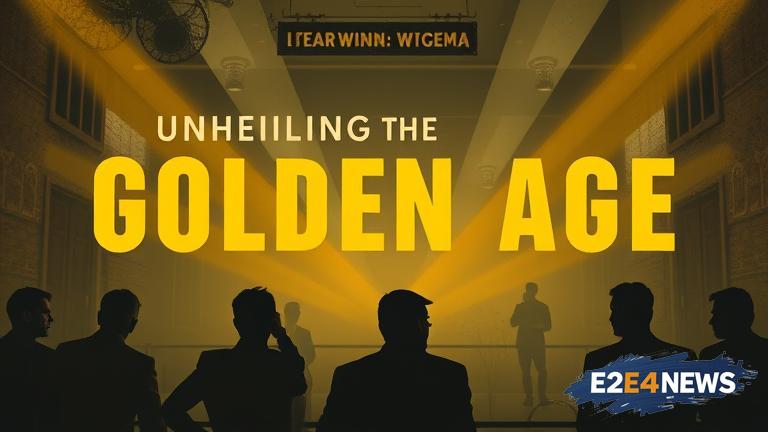The Locarno Film Festival has long been a hub for cinematic excellence, and this year, it’s paying tribute to the rich legacy of British postwar cinema. In a fascinating retrospective, the festival is showcasing a curated selection of films that defined the era, offering a unique glimpse into the social, cultural, and historical context of the time. The curator of the retrospective, a renowned film expert, shares insights into the making of this extraordinary collection, highlighting the key themes, directors, and actors that shaped the industry. From the gritty realism of kitchen-sink dramas to the whimsical charm of Ealing comedies, the retrospective covers a broad spectrum of genres and styles. The post-war period was a time of great change and upheaval in Britain, and the films of this era reflect the nation’s struggles and aspirations. With the rise of the welfare state and the decline of the British Empire, the country was undergoing a significant transformation, and cinema played a vital role in capturing the mood and spirit of the times. The retrospective features iconic films such as ‘Brief Encounter’ and ‘The Lavender Hill Mob’, which not only entertained audiences but also provided a commentary on the social issues of the day. The curator notes that the selection of films was driven by a desire to showcase the diversity and complexity of British postwar cinema, which often defies simplistic categorization. The retrospective also highlights the contributions of pioneering directors such as David Lean and Alexander Mackendrick, who pushed the boundaries of storytelling and visual style. Furthermore, the festival is screening restored versions of several classic films, offering a new generation of cinephiles the opportunity to experience these cinematic treasures in pristine condition. The curator emphasizes the importance of preserving film heritage and making it accessible to a wider audience. In addition to the film screenings, the festival is hosting a series of talks and panel discussions, featuring industry experts and scholars who will provide further context and analysis of the films. The retrospective has garnered significant attention from film enthusiasts and scholars alike, who praise the curator’s meticulous approach to selecting films that represent the era’s most significant trends and achievements. As the festival progresses, attendees can expect to gain a deeper understanding of the historical and cultural forces that shaped British postwar cinema. The curator’s Q&A session provides a unique opportunity for audiences to engage with the expert’s knowledge and insights, shedding light on the creative decisions and artistic visions that underpinned the making of these iconic films. With its rich tapestry of films, talks, and discussions, the Locarno Film Festival’s retrospective on British postwar cinema is an unmissable event for anyone passionate about the art of filmmaking. The festival’s commitment to celebrating film heritage and promoting cinematic excellence is evident in the careful curation of this retrospective, which promises to delight both newcomers and seasoned cinephiles. As the world of cinema continues to evolve, the importance of preserving and showcasing our shared cultural heritage cannot be overstated, and the Locarno Film Festival’s retrospective on British postwar cinema is a testament to the enduring power of film to captivate, inspire, and educate audiences. The curator’s dedication to this project is a reflection of the festival’s broader mission to foster a deeper appreciation and understanding of cinema’s role in shaping our collective identity. By exploring the complexities and nuances of British postwar cinema, the retrospective invites attendees to reflect on the ways in which film can serve as a window into the past, a commentary on the present, and a beacon for the future. Ultimately, the Locarno Film Festival’s tribute to British postwar cinema is a celebration of the art form’s ability to transcend time and borders, speaking to universal themes and emotions that continue to resonate with audiences today.
